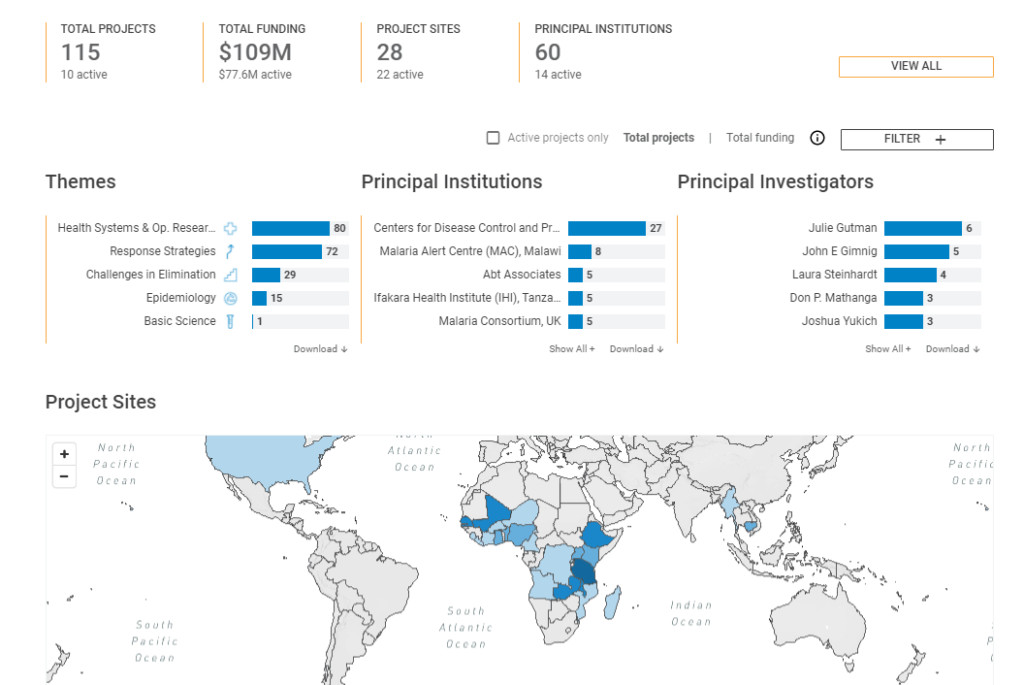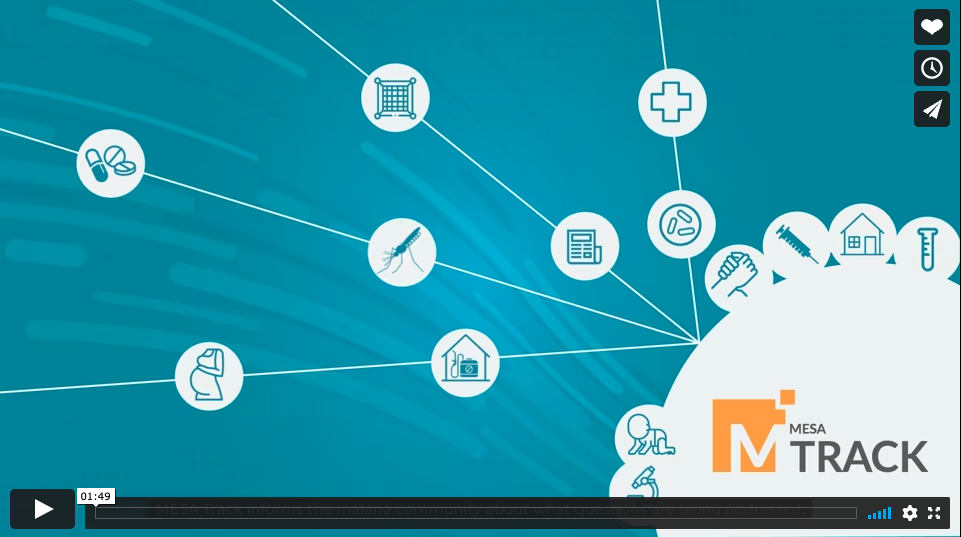Can group pregnancy care programs help women get the medicine needed to avoid potentially dangerous malaria during their pregnancy? Can modifying houses better protect families in Africa from malaria-carrying mosquitoes? Do bednets that contain two types of insecticides provide the same level of protection from mosquitoes as applying insecticides to the interior walls of homes?
These are just a few of the questions from malaria affected countries that the U.S. President’s Malaria Initiative (PMI) is trying to help answer.
While most of PMI’s funds go toward purchasing supplies to help people prevent or treat malaria — such as bed nets, insecticides, rapid tests, and lifesaving medicines — less than 1% of PMI’s budget goes toward operational research and program evaluation.
PMI supports both operational research (OR) where we generate generalizable knowledge about new tools or strategies, primarily around cost, effectiveness, and feasibility at scale, and program evaluation (PE) where we examine how known or proven tools work in a specific setting. OR and PE are so vital to how and what we support they were included in PMI’s authorizing legislation, the Lantos-Hyde Act.
PMI-supported OR uses appropriate scientific methods to judge, compare, and improve malaria policies and program outcomes from the earliest stages of defining and designing through to development and implementation. And this is not research for research’s sake: the objective is rapid dissemination of conclusions and concrete impact on programming.
But how to be transparent about our OR investments? And how to disseminate these results? There is a website for that.
MESA Track is an open access and living online database of malaria research. It captures research projects and institutions research activities in malaria control, elimination and eradication.

What is MESA Track? from MESA on Vimeo.
The malaria community had felt it necessary to create a tool to enable all stakeholders to identify funding and knowledge gaps to shape ideas for new research questions and research areas that need funding support. And thus MESA Track was born in 2012. The free platform collates data and projects, showing who is doing what, where, when and how, maps current and active investments and foresees when new data will become available.
The platform is curated by the MESA Alliance, which is committed to ending malaria through scientific advancement by ensuring that policies and programs are evidence-based and strengthened through new understanding. Both the alliance and MESA Track are funded by a grant from the Bill and Melinda Gates Foundation.
Increasing visibility and access
Since 2015, MESA Track has increased visibility of PMI’s OR/PE projects and made key outputs from funded projects more broadly available. And by highlighting the work beyond academia provides opportunities for seeking new collaborations and partnerships.
Anyone can browse MESA Track and use the data and the data visualization features to learn about the latest advances and download project maps and charts.
Through evidence review exercises called “Deep Dives,” policymakers can identify what new questions are being asked by the malaria community, foresee emerging evidence and plan the timing for future revisions of guidance.
Research groups and other implementers can take advantage of MESA Track to know which interventions have been tested recently, where, the methods and study designs that have been used, expected timing of results, and funding information. They can also use MESA Track to increase the visibility of their work, illustrate their institution’s research strategy and track the institution’s work and progress.
As for funders to the fight against malaria, they can identify where money is being allocated (i.e., research area, country) and therefore where the remaining funding, knowledge and evidence gaps are. This allows donors to make smart investment decisions and illustrate funding strategies.
To formalize collaboration and triangulation of country-driven malaria OR and PE, PMI signed a memorandum of understanding with the Bill and Melinda Gates Foundation and the Global Fund to Fight AIDS, Tuberculosis, and Malaria in August 2021. This includes identifying OR and PE priorities in conjunction with countries’ stakeholders, local institutions and partners, and to promote transparency and tracking. MESA Track is a critical tool for that.
As the database and user base increases, MESA Track is expected to change the way PMI, and other donors, capture and share OR investments, thus fostering transparency and collaboration.

